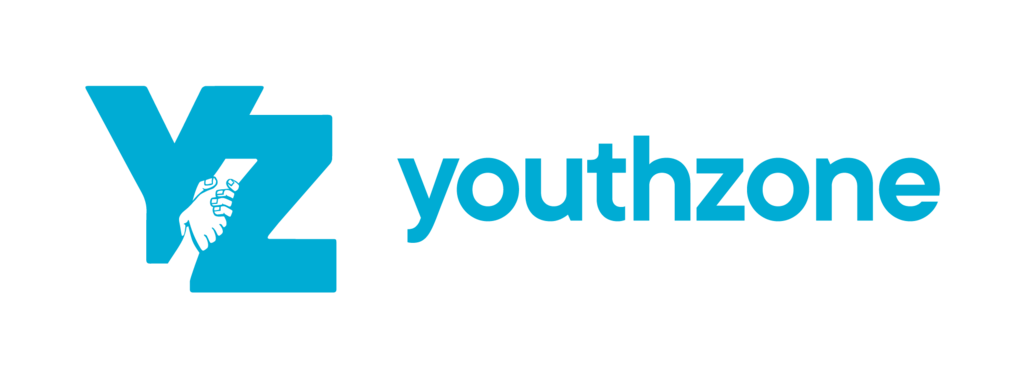By Lori Mueller
When a young person gets caught vaping, vandalizing public property, shoplifting or worse, that moment of excitement or self-satisfaction can quickly turn into a dark and dismal parade of consequences. With state and local support, YouthZone case managers coordinate with other community programs to guide young offenders down a path to amend their transgressions.
Instead of incarceration, these teens are given an opportunity to acknowledge the harm they’ve done to others and to themselves and given the space to change the direction they’ve been running toward.
The first few days can feel overwhelming. Senior Case Manager Jennifer Hawks said people often feel vulnerable, anxious and scared on their first engagement with YouthZone. There is a preconception that YouthZone is where bad kids go, and the youth and their families are embarrassed to be here.
Tina Olson, Clinical Supervisor and Senior Counselor, said YouthZone’s role is to be genuine with the families. “Coming here is not a bad thing. Instead it is an opportunity for parents to have conversations with their child and open doors of understanding,” Olson said.
“It is important to make sure families understand that we all make mistakes and those mistakes don’t define us,” Jennifer added. “We need to normalize things and remind families and youth that this is not a permanent place.”
Case managers need to be people readers. This requires skill and compassion, and it is important to be authentic to oneself, Jennifer said. Their own life experiences help them relate to families who come to YouthZone.
It’s important that everyone feel confident about the help they are receiving from Youth Zone. “We want them to know we know what we’re doing,” Tina said.
YouthZone provides court case management for 15 county and municipal courts in Pitkin, Garfield, and Rio Blanco counties. The case managers also manage school-referred substance assessments, school-referred and court-referred Restorative Justice Circles, community service probation, and self-referrals. Each case is unique and each family is unique.
Each offender completes an intake assessment that discusses the incident of their charge and the concerns of the family. The survey includes questions about employment, school, family, hobbies, activities, and goals. This assessment allows case managers to get to know a juvenile’s strengths and risks in a short amount of time. Case managers also take time for a one-on-one conversation with parents. At the conclusion of the assessment, an individualized, strength-based contract is developed for the young offender.
Often the problem that brought the youth to YouthZone is part of a much bigger picture. Some of the things that surface during an assessment are problems that parents are unaware of, including thoughts of suicide, school bullying and sexual abuse. The case managers will help teens find ways to share this information with their parents.
Tina said the case managers are the soldiers in the field. They have the independence to use creative resources to help kids to play off their strength. If a teen is brought in after writing a violent rap song, part of their program with YouthZone could include rewriting the song to give it a different voice. When a school newspaper editor found himself in front of a case manager, he used the resource of the newspaper to tell about his YouthZone experience.
In 2018, Youth Zone had 306 intakes. Case managers average a workload of 45 to 50 clients each year. The case manager advocates for the youth at their court appearance, and they check in regularly with the client and their family over a three-month period to get clients to complete their contracts in a timely manner.
Case managers also need to provide parental support and education. Parents are an important part of the process and need to be heard, Jennifer said. Their child’s experience and its discoveries are difficult for parents to wade through. YouthZone case managers provide tools to open communication between parent and child. This starts with asking parents to think of three positive things about their child. Case managers sometimes need to spell out the responsibilities of the parents.
Case managers take a collaborative and individualized approach to ensure kids are successful with resolving their case. Depending on the circumstances and initial referrals for each case, a teen could possibly access the Restorative Justice Circle, classes like Seeking Safety, community service opportunities, the drug and alcohol group, or individual counseling. Other community resources that may come into play include working the Department of Human Services, the District Attorney’s staff, school district resources or local police.
It is the YouthZone case managers who have the back story to each kid, and they can reinforce the human element wherever it is needed in each case, Tina said. They can make things happen because there is less red tape.
Jennifer said the case workers also have to learn to take care of themselves as they take care of teens in trouble. Many of the stories are heart wrenching. When she first started experiencing these stories, Jennifer’s tears on the way home each night were a way to release and purge some of the heaviness of what she heard. She does better now, but becoming part of each trauma still needs an avenue of release so she can stay on track with the job.
